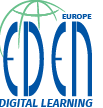
- This event has passed.
Democratizing research and science: Ways forward
February 25, 2022 @ 00:00
Presentations and panel discussion
In this session, we will reflect on how research and science are currently produced and discuss ways we could make them more inclusive, open, and democratic. In the first talk, Dr Jess Carr will talk about participatory and inclusive research with excluded communities. In the second talk, Dr Christothea Herodotou will talk about how technology can support democratic research by allowing non-professionals to set up their own studies. In the third talk, Prof Bart Rienties will discuss about open science and scholarship in relation to learning analytics, inviting attendees’ to share their thoughts and perspectives.Talk 1 Dr Jess Carr
Title: What makes a researcher? Doing participatory inclusive research with excluded communities
Abstract: To an outsider, research and higher education institutions can seem ‘elitist’. Yet as funders look to include more communities in research, our practice must change. So how do we engage with communities that are frequently excluded, and break down the barriers put up by researchers who came before us? This talk will explore inclusive research, and its participatory approaches in engaging adults with learning disabilities as co-researchers.
Talk 2 Dr. Christothea Herodotou
Title: Opening research to non-professionals through community-led citizen science
Abstract: A means of democratising research is to enable communities and individuals with no or limited science expertise to design their own scientific investigations, grounded on their needs and requirements. The award-winning nQuire platform (nquire.org.uk) has been designed with support from the OU/BBC partnership, to scaffold the process of setting up and managing scientific investigations and enable community-led citizen science. It has engaged 230K+ people with research. Two mechanisms support participants in taking control of the research process: an authoring tool and collaboration with scientists. A survey of 150 participants of nQuire identified challenges related to people initiating their own studies such as a lack of time and the need for support, that researchers should tackle if it is to open science to all. Implications for the design of community-led citizen science will be discussed.
Talk 3 Prof Bart Rienties
Title: Building Open Science and Scholarship in learning analytics: some preliminary thoughts
Abstract: On 21 March the Society of Learning Analytics Research (SoLAR) will bring together some leading thinkers in learning analytics and data science to discuss how open science and scholarship can be incorporated into learning analytics culture and practice. Practitioners and researchers from across the world are invited to share their thoughts and perspectives. At EDEN on the 8th of March we are keen to explore your perspectives on open science and scholarship, in particular with relation to learning analytics. Amongst the questions to be discussed are: What could and should EDEN and SoLAR do to encourage open science and scholarship?; What prevents researchers from contributing to open science?; Which learning analytics approaches could (not) be made open, and why?; And what could organisations like SoLAR and EDEN do to make open science and scholarship more attractive and relevant?
[bookline] [eden-webinar-moderators] [bookline] [eden-webinar-speakers]